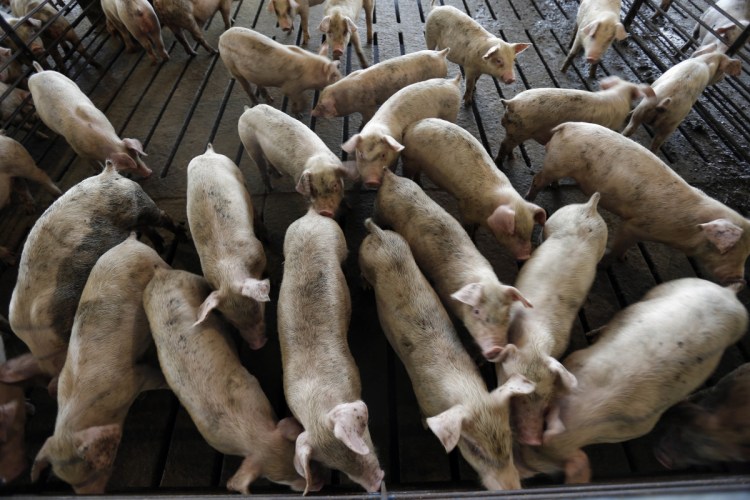RALEIGH, N.C. — Blankets of black flies spawned by a nearby industrial hog farm’s uncovered cesspools can be so thick, Elvis Williams told jurors Tuesday, he built a screened front porch for his mobile home so that he could continue grilling dinners as he’s loved doing for decades.
The 60-year-old former textile worker testified in one of numerous federal lawsuits that have rattled agribusiness in the country’s No. 2 hog-growing state. Farm interests have turned to state legislators to erect new protections for the politically influential pork industry.
Of about two dozen lawsuits filed years ago by more than 500 eastern North Carolina neighbors against Virginia-based Smithfield Foods, Williams’ is the second to reach jurors.
The lawsuits contend that Smithfield, which dictates the conditions under which farmers must raise its hogs, has resisted changing its concentrated animal husbandry methods because they cost less than less-smelly methods the company already uses in other states.
Smithfield Foods is owned by Hong Kong-headquartered WH Group, which generated $22 billion in revenues last year.
Four blocks away from the federal courthouse where Williams testified, a state House committee on Tuesday approved legislation sharply limiting neighbors from punishing farm operations for causing severe nuisances. The proposed law would all but block other neighbors from suing industrial-scale livestock operations in the future.
Lawmakers said their action was spurred by the $51 million in penalties a jury in the first trial ordered Smithfield Foods to pay to neighbors who spent decades tolerating horrible smells and other nuisances. The fine was cut to about $3 million because North Carolina law limits punitive damages meant to punish misdeeds.
Williams and other neighbors say they don’t want to put livestock operations out of business, but that Smithfield could and should eliminate nuisances like smells and noise, even if it costs them more to do so.
Send questions/comments to the editors.



Comments are no longer available on this story